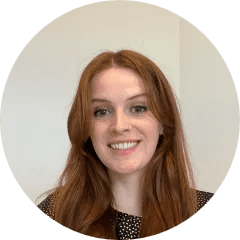For International Women's Day, we interviewed women across our network to understand how organisations can attract and retain more women into senior and leadership roles in our three core markets.
As part of our ongoing focus on International Women’s Day, we interviewed women leaders across our three core markets to learn about their diverse career journeys, and to ask them how organisations can attract and retain more talented women into senior, executive and board-level roles. Whilst some of the insights shared were compiled into our 2024 International Women’s Day report, we wanted to use our platform to share all of the invaluable insights we heard through these interviews.
In this series, we are putting the spotlight on each of the women we spoke to who shared their insights and expertise. This blog shares the conversation Katie Dunbar, an Associate Partner in commodities for EMEA at Proco Group, had with Paola Rodriguez- Masiu, Head of Research and Trade Analytics at STX Group.
Please will you talk me through your career to date and how it’s developed to where you are now?
In my current role as Head of Research and Trade Analytics, I effectively manage two different teams – a central research team and then the desk analysts that are in the different business units.
Before STX, I was the Head of Market Intelligence for an organisation headquartered in Madrid and my role was related to crude oil and refined products. Prior to that I was a vice president and analytics product manager for Rystad Energy.
The last seven years of my career have been related to trading – it’s what I love to do. From the first moment I started to work in the industry I fell in love with it and never left.
However, I did not start my career in trading, as my first job was as an engineer. I worked for about two years in Norway in petroleum exploration. It was a very technical job and, once I’d grasped all the things I needed to do, I felt like I stagnated, and every year was the same as the last – even when I progressed to a more senior level.
So, I quit my job and decided to go back to university to get my third degree, this time studying the politics and economics of international energy. After that is when my career in trading started because I got into energy and working very closely with traders and hedge fund managers.
As an analyst, I had the best of both worlds. I can apply my engineering skills, but I can also be on the economic side and the policy. There’s also a little bit of consultancy and sales involved because you have to know how to sell the analysis that you’re making.
What have been some of the high points of your career?
Joining the STX Group and having the opportunity to build a new team from scratch in a new industry has definitely been a turning point in my career. It felt like receiving a blank canvas, where I’m able to build something in a way that it has not been done before.
My time at Rystad was also crucial for my career as I started with the company as a junior analyst and left the company four years later as a vice president and product manager for one line. From many angles, a lot of the things that I am today are related to that time.
Who have been the best role models for you throughout your career that have made the biggest difference to your progress?
Reflecting on my career, my parents had a lot to do with how it ended up. For example, at home I was ever told that a girl shouldn’t do something – there was never that speech from either of my parents.
My mom was what you would call a ‘strong woman’, and then my father has always been a very supportive person. When I moved out of my house at 16 years old to study in another state, people asked my father why he allowed it. His response was, “What is going to happen is that she’s going to study and become a kick-ass woman. That’s the only thing that’s going to happen.”
I’m also lucky to have had a role model who was my manager and has now become a mentor and a dear friend. When I joined that company, I had her as an example of all the things that were worth being; determined, unapologetic, and comfortable in her role as the boss. Smart, but also kind. She mentored me and encouraged me to find internal sponsorship.
Have you seen any positive initiatives that help attract or retain women at any level?
The initiatives that I personally feel more passionate about are those where we start to think about recruitment from a different angle.
There is an ongoing conversation about why we don’t have enough women in a particular sector or position, and it might be because of the way we approach recruitment. If an organisation only recruits from certain universities or certain roles that tend to be preferred by men, they should question whether they’re missing any important skills and try to hire different profiles that will bring more variety and benefits to the company.
I’m supportive of these initiatives because they kill two birds with one stone. Firstly, it takes care of diversity from the gender point of view, but it also takes care of diversity as a deeper issue – not just the visible diversity, but also diversity of thought.
"They’ve done studies about this where a man will apply for a job that he’s only 50% qualified for, whereas women will only feel comfortable applying when they feel like they can do 90-100% of the job description. Part of my role is to coach people about what they are capable of. Rather than looking at what they know they can do today, we focus on what they do in that role and how could they develop in future."
In the position you’re in now, what advice would you give to young women coming up in their own careers?
The first piece of advice would be to be unapologetic of who you are. Never believe that you are good despite being a woman, but more like you’re good because you are a woman.
The second is to find yourself a sponsor who can explain how the internal politics of the company work, what works, and what doesn’t. I think it’s always smart to get somebody invested in your career because when they’re invested that way, psychologically your success becomes their success.
And then the third one is to have fun while you’re doing it and don’t take yourself too seriously. If somebody is criticizing something, there is no point going around in circles thinking, “They’re saying this or that about me.” It’s completely unnecessary. I remember it was my father that always used to say, “Don’t pay attention to what other people say, because 90% of them don’t care about you.”
–
We’d like to extend a big thank you to Paola for sharing her expertise and insights with us.
Read the International Women’s Day report
Click the button below to read our full International Women’s Day report, which highlights the current state of play across our three core markets and shares how to attract and retain talented women into senior, executive and board-level roles.
Katie Dunbar
Associate Partner | Commodities | EMEA
Katie leads our EMEA dry bulk executive search practice, executing mandates for trading and analysis roles in Agriculture, Softs and Metals.
She has 9 years’ experience partnering with a wide range of clients from start-ups to FTSE 100 companies across a variety of sectors, including commodities, shipping and procurement.
Katie has curated a consultative style, ensuring reliable partnerships with some of the most reputable firms, and close relationships with the best talent in the market, enabling consistent and swift delivery on tough projects.
T: +44 12 7364 8080 E: katie.dunbar@weareprocogroup.com





